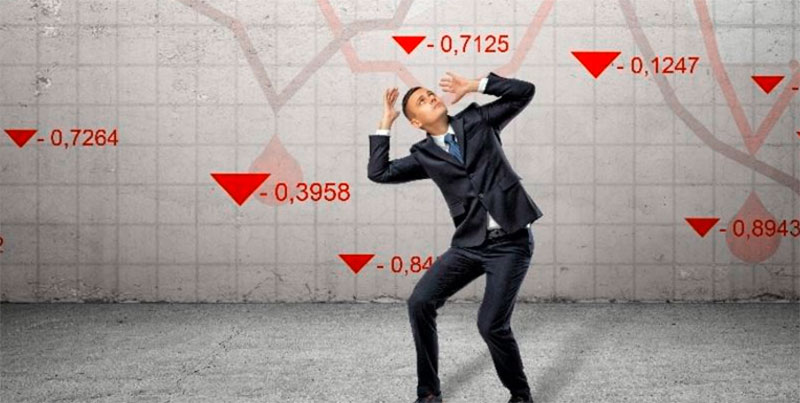history's largest stock market crashes in the US
Nov 26, 2022 By Triston Martin
Investors have enough to fret about as the Federal Reserve raises interest rates to combat excessive inflation, which may threaten to plunge the country into a recession. Investors may be reminded of the potential stock market catastrophe this October. Market players may be thinking about crashes in light of the recent market upheaval because the two most significant stock market crashes in U.S. history occurred in October.
The most critical data from the stock market crash

On October 19, 1987, the Standard & Poor's 500 and the Dow Jones Industrial Average recorded their worst one-day percentage declines. The S&P 500 dropped 20.5%, and the Dow dropped 22.6%.
The Dow Jones Industrial Average fell by two of its top four excellent percentages on back-to-back days in 1929, on the 28th and 29th. Between those two days, the stock market lost about 25% of its value.
Crash of the world economy, 2008–2009
When the housing market crashed in the fall of 2008, it nearly dragged the entire American financial system down. The federal government had to step in to save banks and financial institutions that had taken on too much risk with subprime mortgages. In 2007, when the first red flags were raised, the market still went higher. Stocks continued to drop as the severity of the issue became apparent throughout 2008, hitting a low point in September of that year.
Deadline for the 2020 pandemic caused by COVID-19:
In March 2020, when investors began comprehending the scope of the Covid-19 outbreak, the stock market experienced one of a kind. The Dow Jones Industrial Average experienced its most significant point decrease ever on March 16, 2020, dropping about 3,000 points, or nearly 13 percent. This was also the Dow's most significant single-day percentage drop since the 1987 disaster.
On March 23, 2020, the S&P 500 plunged 34% from its all-time high on February 19, 2020, making it one of the most fantastic drops in market history. However, the market began to recover as the Federal Reserve and the United States Treasury Department stepped in to support the economy and increase assistance to those most hit by the outbreak. The market hit a new high in August and kept increasing for the better part of 2021.
Is there a crash in the stock market?
Being in a bear market and having fallen significantly from its highs, it's natural to wonder if another market disaster is imminent. Although the market has fallen, it hasn't experienced the precipitous drop associated with market crashes. Investors are still determining how to react to soaring inflation, rising interest rates, and a possible economic downturn contributing to the falls.
Avoiding Financial Disaster in a Recession
Even though it's next to impossible to foresee a market crash, there are measures you may take to safeguard your finances in the event of a market decline.
Think positively
Your frame of mind is crucial if you invest in the stock market. Long-term investors who are putting money away for retirement don't have to worry about being able to foresee every market collapse. You should accept that setbacks are a natural and inevitable part of investing and prepare accordingly. Most people are their own worst enemies when investing because they constantly enter and exit the market at the worst possible periods. Maintain a focus on the big picture.
Contribute consistently
You can take advantage of market downturns and lower pricing by saving for retirement using a workplace retirement plan like a 401(k). The term "dollar-cost averaging" refers to purchasing more shares at lower prices and less at higher ones.
There is value in cash.

If the possibility of a market decline is a significant source of anxiety for you, you may want to raise the proportion of your portfolio that is held in cash. You can reinvest the money at better rates of return, and you'll be safe even if prices drop. While having cash on hand can be convenient in the short term, it can weigh down your investing performance in the long run.
Do not put borrowed funds into an investment.
Borrowing money to invest is an excellent method to increase the size of your returns, whether good or poor, but it can lead to severe problems in a bear market. As an investor, you should prepare for setbacks but have faith that you can and will eventually succeed again. An average market decline can have a devastating effect on your financial situation if you invest borrowed money. In general, investors should avoid opening a margin account at any cost.





